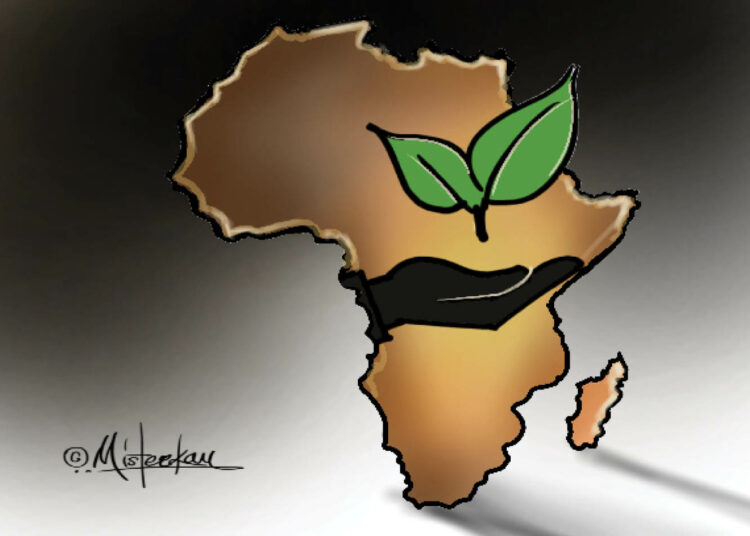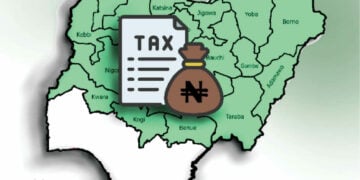In The Republic, Plato argued that a just society must be ruled by philosopher-kings, leaders not only trained in the art of governance but shaped by wisdom, character, and an understanding of the soul of their people. It is this ancient insight that echoes, whether knowingly or not, in the emergence of the African School of Governance (ASG), recently established in Kigali. For far too long, African leaders have been educated to govern everywhere but home. Their training, their tools, and even their governing philosophies have been borrowed.
If governance is the act of shaping a people’s collective destiny, then its tools must be forged in the furnace of a people’s own history, culture, and realities. ASG appears to recognise that governing Africa requires more than imported models, it requires a return to first principles. It is this promise that calls so powerfully to many of us who once looked to Harvard, Oxford, or Sciences Po as the pinnacles of public policy education. Today, the more compelling pilgrimage may be to Kigali.
The Problem of Imitation in a Postcolonial World
In The Wretched of the Earth, Frantz Fanon warned that the greatest danger facing postcolonial societies was the temptation to imitate their former colonisers. He saw newly independent African leaders donning the robes of statecraft but adopting the methods, manners, and mindsets of European states. The result was often alienation – a governing elite fluent in global development jargon but deaf to local grievances, dismissive of indigenous wisdom, and dependent on donor prescriptions.
The same tension persists in our educational choices. The public administration programs in Western institutions are built on histories of industrialisation, liberal democracy, and bureaucratic efficiency. Their cases are drawn from Boston’s public housing reforms, Sweden’s healthcare system, or the politics of Berlin. Their philosophies assume strong states, individualist societies, rule-based cultures, and abundant resources. But Africa is different – structurally, historically, and culturally.
The continent is young, communitarian, improvisational. It is simultaneously precolonial, postcolonial, and hypermodern. A street in Lagos might feature a smartphone shop beside a roadside shrine, across from a colonial-era courthouse. Governance in such a place cannot be taught as it is in Geneva. It must be re-imagined.
History as Curriculum, Not Footnote
At the heart of the ASG curriculum is a recognition that Africa’s future cannot be charted without understanding its past. History is not a backdrop; it is the terrain. A course in African History, if properly taught, would not merely chronicle the events of colonisation, independence, or civil war. It would examine how colonial boundaries turned neighbours into foreigners, how indirect rule eroded traditional institutions, how structural adjustment hollowed out public capacity, and how liberation movements became ruling parties.
One imagines a class in which students read not only archival treaties and speeches, but also Achebe’s Things Fall Apart and Ngũgĩ wa Thiong’o’s Decolonising the Mind, alongside documents from the Organisation of African Unity and early post-independence constitutions. In such a setting, the student is not a passive recipient of Western theory, but an active participant in understanding why African states function as they do—and how they might function better.
This approach aligns with what the Roman historian Livy hoped to achieve in his work: “what kind of lives the ancestors lived… what was the character of the men… what policies they pursued.” Governance is not just laws and regulations—it is the accumulated moral and political habits of a people.
Learning from Africa, Not Just Teaching It
The cases taught at ASG must also reflect this continental introspection. Western schools excel at crafting compelling policy cases—how New York City cut crime, how Singapore transformed education, how Finland managed prisons. But ASG has the opportunity to craft its own canon of cases—ones that resonate with the complexity, ingenuity, and struggle of African states.
Imagine studying how Rwanda rebuilt trust and institutions after genocide. How Ethiopia mobilised around a developmental state model. How Nigeria’s electoral commission under Attahiru Jega restored credibility to a fragile democratic process. Or how Senegal integrated talibé religious schooling into a broader educational framework. These are not theoretical exercises – they are living laboratories of reform. They reflect governance not in abstraction but in context, with all the imperfections, constraints, and contradictions that define African public life.
Here, again, we find echoes of classical thought. Aristotle argued that political systems must be judged not against ideal forms, but by how well they function given the character of the people and the circumstances of the state. What works in Sparta may not work in Athens; what succeeds in Rwanda may not be suited for Chad. The key is to understand the logic within, not impose a logic from without.
The Return of the Philosopher-King
If ASG is successful, it will produce more than administrators. It will produce leaders—those rare individuals who, like Marcus Aurelius, blend philosophy with action. Leaders who understand that governance is not only about policies and procedures, but also about ethics, symbolism, and narrative. Africa’s challenges are vast: youth unemployment, climate vulnerability, fragile institutions, and geopolitical contestation. But its potential is even greater—demographic vitality, cultural richness, entrepreneurial energy, and an awakening sense of continental purpose.
Courses like Leadership for African Transformation and Political Economy of Governance will be crucial. They must move beyond the clichés of servant leadership and delve into the realities of navigating power: how to mobilise coalitions, manage dissent, make trade-offs, and maintain integrity in the face of patronage. The texts might range from Machiavelli’s The Prince to Nyerere’s speeches, from Kautilya’s Arthashastra to Mandela’s Long Walk to Freedom. Each offers a different lens on how power can be used, abused, or transcended.
Equally critical is the inclusion of Decision Science and Economics for Public Policy. These courses must blend technical competence with humility. Data matters, but so does context. Policy must be evidence-informed, yes—but also people-aware. Here, the insights of behavioral economics, pioneered by thinkers like Daniel Kahneman and Cass Sunstein, can be blended with local knowledge systems and indigenous heuristics to design interventions that truly resonate.
And then there is Science, Technology and Innovation—a forward-looking offering that signals Africa’s intention not just to catch up, but to leap ahead. In a world shaped by AI, climate change, and digital disruption, African governance must be anticipatory, not reactive. It must harness innovation not just to solve problems, but to reframe them entirely.
The School Africa Has Been Waiting For
What makes ASG’s emergence so timely is not only the crisis of confidence in global governance, but the parallel rise of African agency. More Africans are questioning the logic of donor dependency, the utility of foreign aid, and the wisdom of external models. They are demanding institutions that speak to their realities and invest in their futures.
ASG, if it lives up to its aspirations, could become a sanctuary for such minds—a place where Africa’s best and brightest come not to be westernised, but to be Africanised, intellectually and ethically. A place where ideas are forged, challenged, and rooted. A place that understands, as Fanon did, that “each generation must discover its mission, fulfill it, or betray it.”





